African Feminism with Nigerian Journalist Chika Oduah
When you hear the word “Africa” and African Feminism, what do you see? Despite it’s cultural vibrancy, those from the outside looking in often only see a faceless dark mass ridden with terror and desolation.
Chika Oduah sees colors of all different shades because Africa could never be reduced to anything less than a multifaceted diamond in the rough. She sees the future of a continent that’s incredible strength has been proven through its trials and deserves much more than to be painted with a single brush.
Chika artfully pens about African feminism, allowing her subjects to breathe a raw energy into her stories. Because after all, it’s theirs to tell and should never be misconstrued. Chika’s articles include stories of culture and stories of change; stories of horror, yes, but also the untold stories of happy endings. She opens the book and articulately tells each one, seeking to eradicate the western myths of the unknown Africa. Through her journalistic work and evocative words, she investigates then illustrates the life and times of Nigeria and beyond. Chika Oduah is an independent multimedia journalist that has been published in The New York Times, Al-Jazeera, CNN and The Atlantic to name a few.
—words and interview by Maya Amoah.
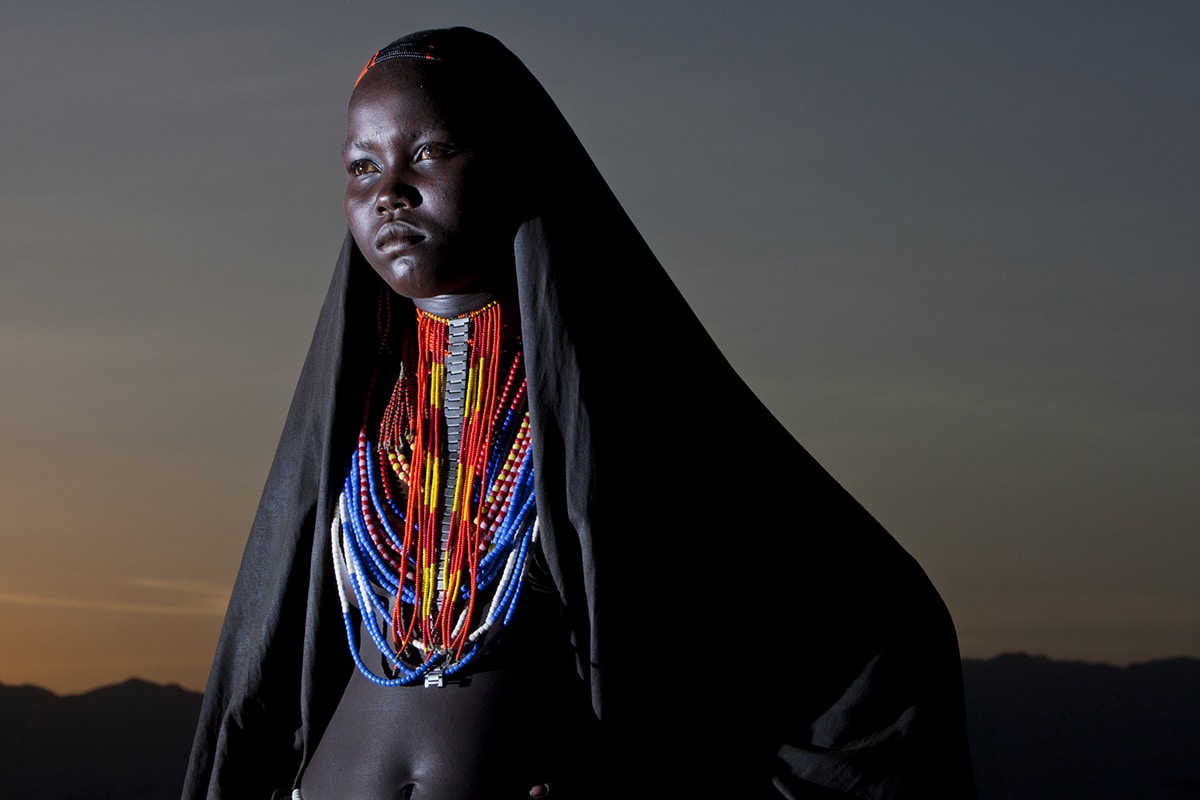
Maya Amoah (VAGA): You were born in Nigeria but came to the United States at the age of two. What was the reason for this?
Chika Oduah: I came from Nigeria with my mother and younger sister. We were joining our father who was already in the US.
Does the “American Dream” ideal live in Nigeria?
Sure. The American propaganda machine is global. You see it in movies. We swallow it down with Famous Amos cookies and Coca-Cola.
Nigerians are well aware of the “American Dream” ideal. Some wholeheartedly believe in it and wish to go there, others think it’s a big fat lie and are content with life in Nigeria.
What’s the diaspora like over there in Atlanta? Did your parents find it easy to adapt to this new life and really integrate into American cultural norms?
The Nigerian diaspora in the US is vibrant and well-connected. It’s a close community spread across many states. There are thriving Nigerian diaspora communities in Houston, Atlanta, New York City, the DC/Virginia/Maryland region, Chicago, Los Angeles, Minneapolis. We’re everywhere! I would not be the person I am today without the Nigerian diaspora community. We’re really strong. I was very active in Atlanta’s Nigerian community. I went to Igbo parties, Nigerian weddings, the Nigerian churches. We have Nigerian restaurants and grocery stores. I really like how we strive really hard to preserve our culture.
When I was younger, I learned Igbo traditional dances because I was part of the Nigerian Youth Alliance, which is a diaspora youth group based in Atlanta. One thing I find so interesting- the Nigerian diaspora in the United States makes such an efforts to “be Nigerian” by paying homage to the old school styles, while in Nigeria, a lot of youth are trying to be American! It’s hysterical. For example, when I go to traditional Igbo weddings in Nigeria, oftentimes, the bride is wearing Western lace and a Brazilian or Indian weave on her head. She may not know how to do traditional women’s dances. This is the modern Nigerian culture, I guess.
Modern Nigerian hip-hop/Afro beat music is usually blasting. But, in the US, a lot of the traditional Igbo weddings will play the old school Igbo music and the bride is decked out in george material, donning traditional hairstyles with the braids in ball-shapes and breaking down in traditional Igbo women’s dances.
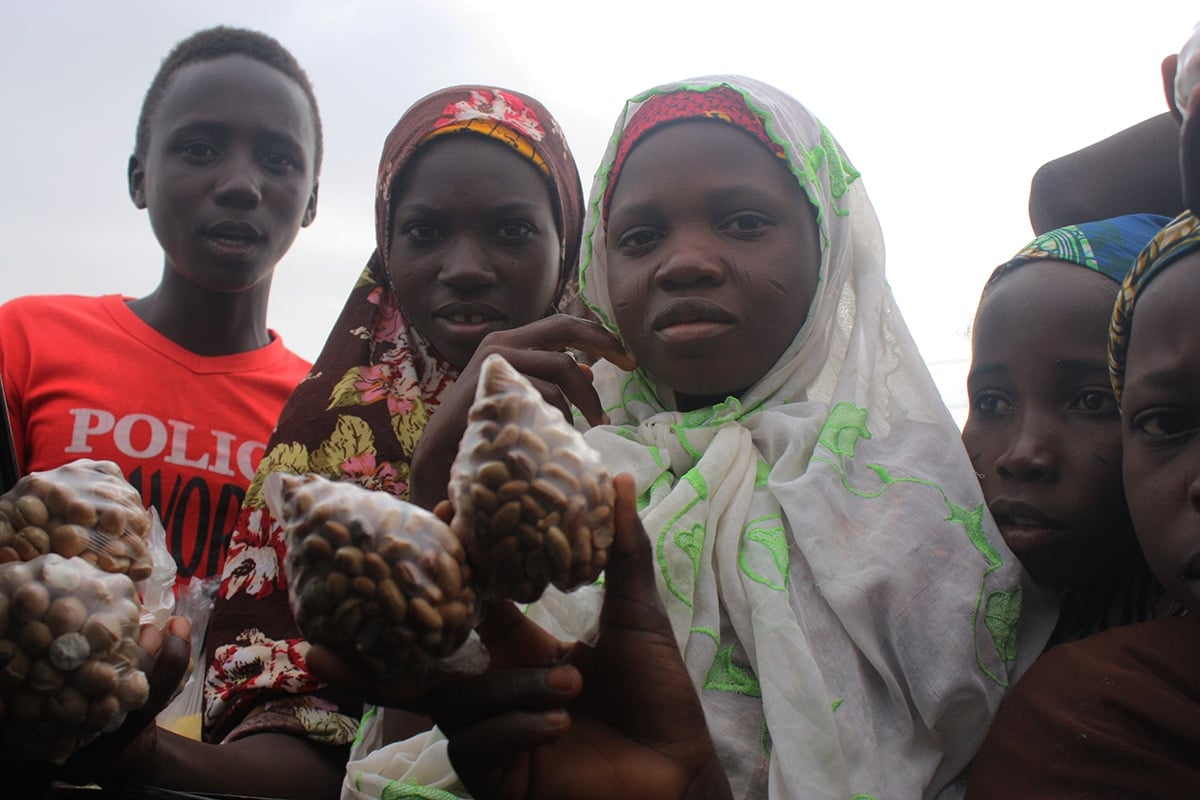
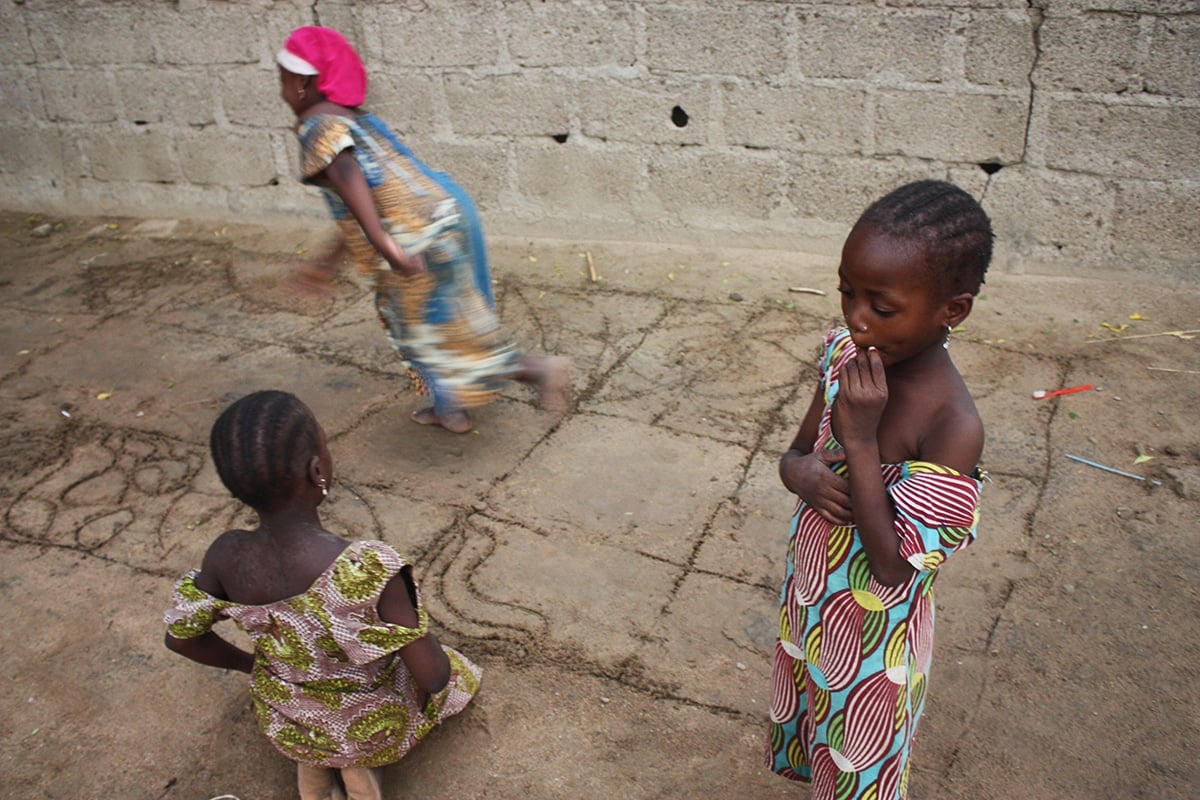
My own roots are from Ghana and I visited when I was younger. Everyone on the streets would shout out Obruni at us as we walked by! Obruni means white person, haha… Moving back to Nigeria all these years later, do you truly feel at home in Nigeria or more like an American in Africa?
It depends on the day. Actually, it depends on the hour in the day! Sometimes, I do feel more American and I’m sometimes viewed that way, especially by my peers. It’s funny, the older Nigerians I talk to find me to be “more Nigerian,” whatever that means. I think it’s because I love to listen to proverbs. I love dancing and listening to highlife music. I’m always asking questions about Nigerian history. I tie headscarves with my casual, everyday clothes. I’m more fabrics like Ankara and Akwette rather than the more Westernized fabrics like lace and voile that are so popular here.
I fell in love with your blog, Afrocentric confessions, your poetic words drip so smoothly and they illustrate your stories perfectly. Aside from your journalism, do you do a lot of creative writing (like poetry) in your free time?
Thanks for the kind words. They’re encouraging. Poetry was my first form of writing. I was writing poetry when I was 10 years old. From poetry, I moved on to short stories. I thought I would be a fiction novelist. I started journalism when I was 16.
Your position as a media journalist plays a fundamental role on how information of a world we can’t see gets spread. What do you do that may be different than other journalists?
All journalists are disseminating information. That’s what I do. I do make a great effort to report without bias and dig deeper. I’m interested in historical and cultural contexts. Stories deserve to be told in their entirety. That’s what I focus on.
Your articles are more like stories, accompanied well with the gripping photography you take. Now living in Nigeria full time, you can follow up on those subjects. How important is it for you to establish a good relationship with them? It’s a priority. The people I talk to are not just characters. For me, they are lifelines. I need them. They are teachers. They are preserves. They are like relics. Without them, I cannot capture the essence of an event that I am reporting on. They are my guide into a time and a place. I need them to hold my hand and show me what it’s like to be there. So, it may be a mother who is describing the night Boko Haram came into her town and killed her son and kidnapped her daughter. This mother is leading down a path down memory lane. It is my duty to give her the utmost respect and compassion. I need to capture everything she tells me in 800 to 1,500 words. I need to make those words come to life and the only way I can do that is to respect her. [Article: In The Land Of Nigeria’s Kidnapped Girls]
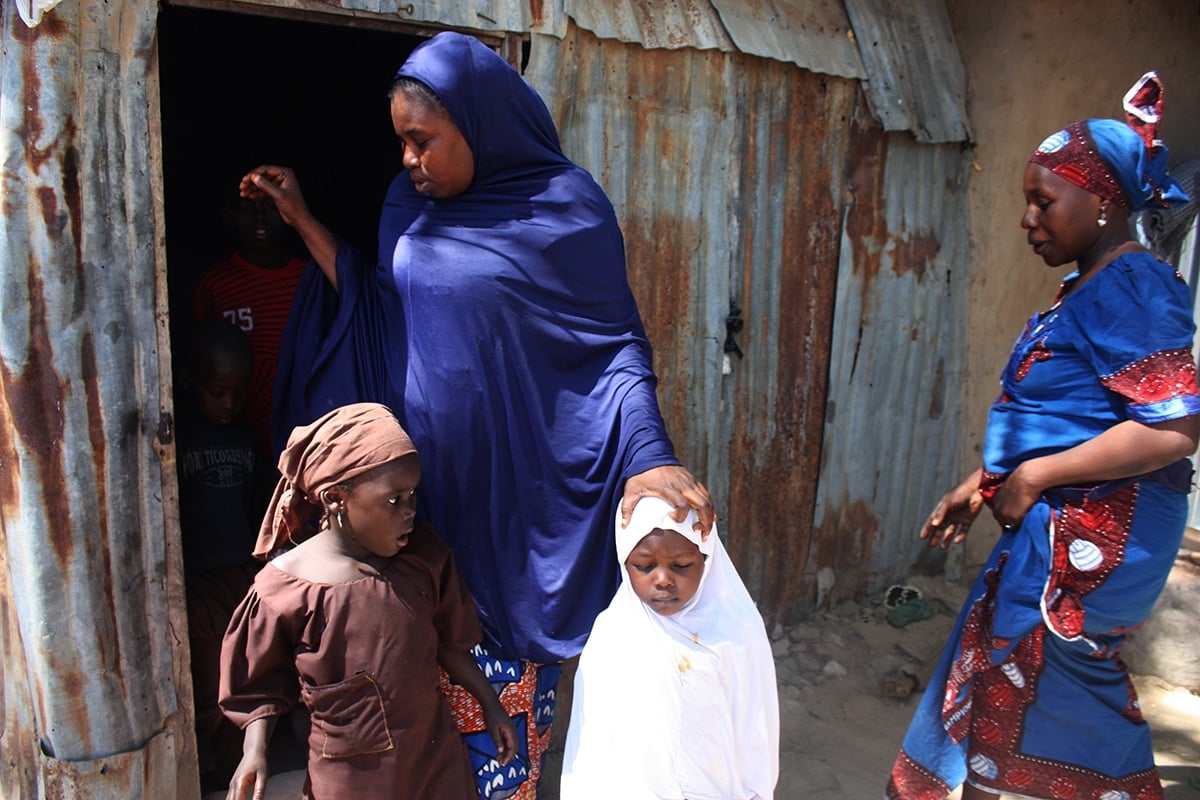
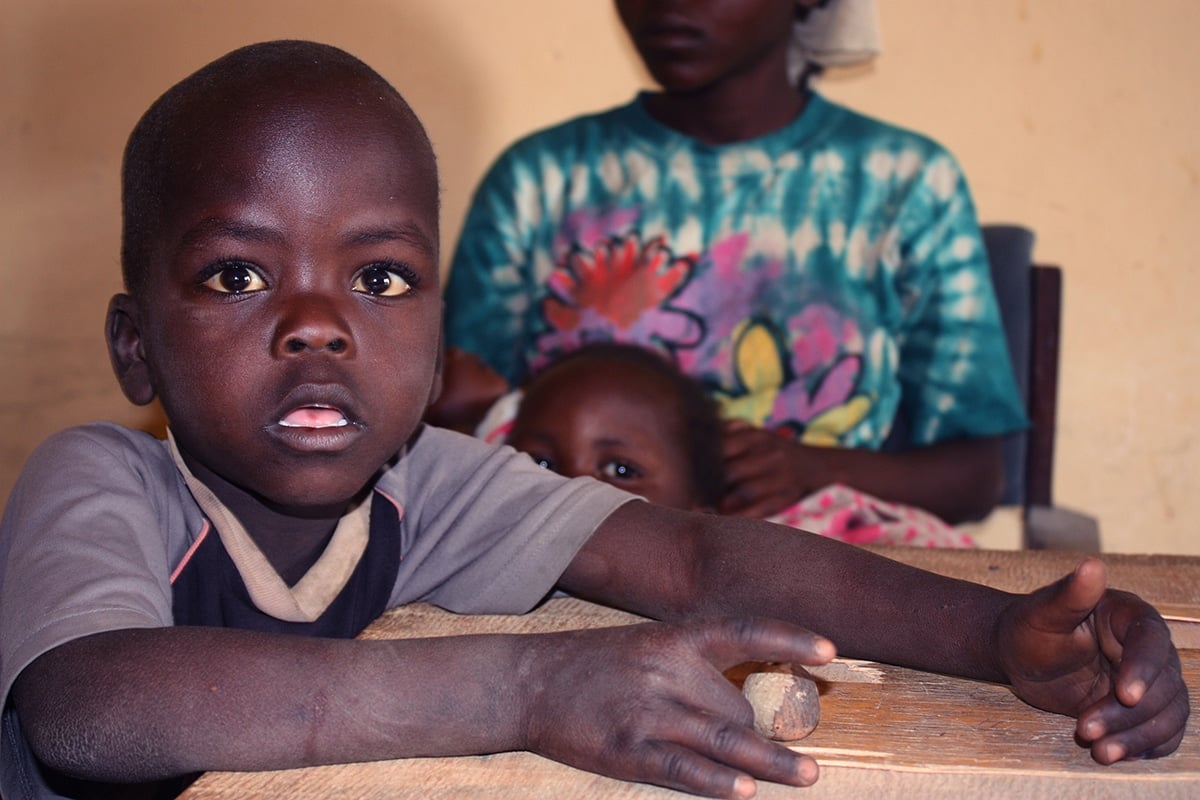
It’s clear your mission is to demystify Africa once and for all. When I first read this I immediately thought of a time my family and I were playing Trivial pursuit and the card mistakenly regarded Africa as a country. How behind are North Americans on our knowledge of Africa? Is it getting better?
I can’t believe that a game manufacturer would make such a mistake! That’s ridiculous. I grew up in the United States. I lived the average middle class American life. I know what’s out there in American mainstream media. I know what’s being taught in American public schools. Africa is hardly mentioned, unless there’s a desperate famine that calls for the world to pay attention. That’s just the way it is in the U.S. The media is to blame. The media is supposed to educate citizens. In the U.S., the mainstream media is doing poorly in reporting about Africa. It’s unfortunate.
You’ve voiced a need of more perspectives from real African journalists rather than corporate broadcasters who often skew the African narrative. What kind of picture of Africa are these news outlets painting for us? Do you think limiting perspective can be dangerous?
Chimamanda Adichie eloquently discussed the danger of a single story, the danger of a single narrative. Reporting on Africa must be done better. The media’s power cannot be underestimated. An image of a child soldier pasted on the front page of a magazine can influence everything you think about African children.
I read that one of your favorite features was your investigation of the lead poisoning incident in Zamfara. While others had also gone in when it first occurred, no other journalists followed up. That app story is incredible! Why didn’t we hear about it? Do media outlets benefit a lot more from another African horror story?
Horror sells. The prevailing adage in journalism is: if it bleeds it leads. Some people are content to view Africa as a continent of disease and doom. They do not want to be challenged on that tired narrative. That narrative sells, especially when it comes to “charitable causes.” Infomercials about starving orphans who need to be rescued by suburban America rely on that narrative. True, many journalists did not follow up on the lead poison story. But the follow up was amazing and it was newsworthy. It depends on one’s definition of newsworthy, perhaps. But I believe the story of a young Nigerian techie who helped to end a lead poison outbreak in northern Nigeria is just as important as the outbreak itself.
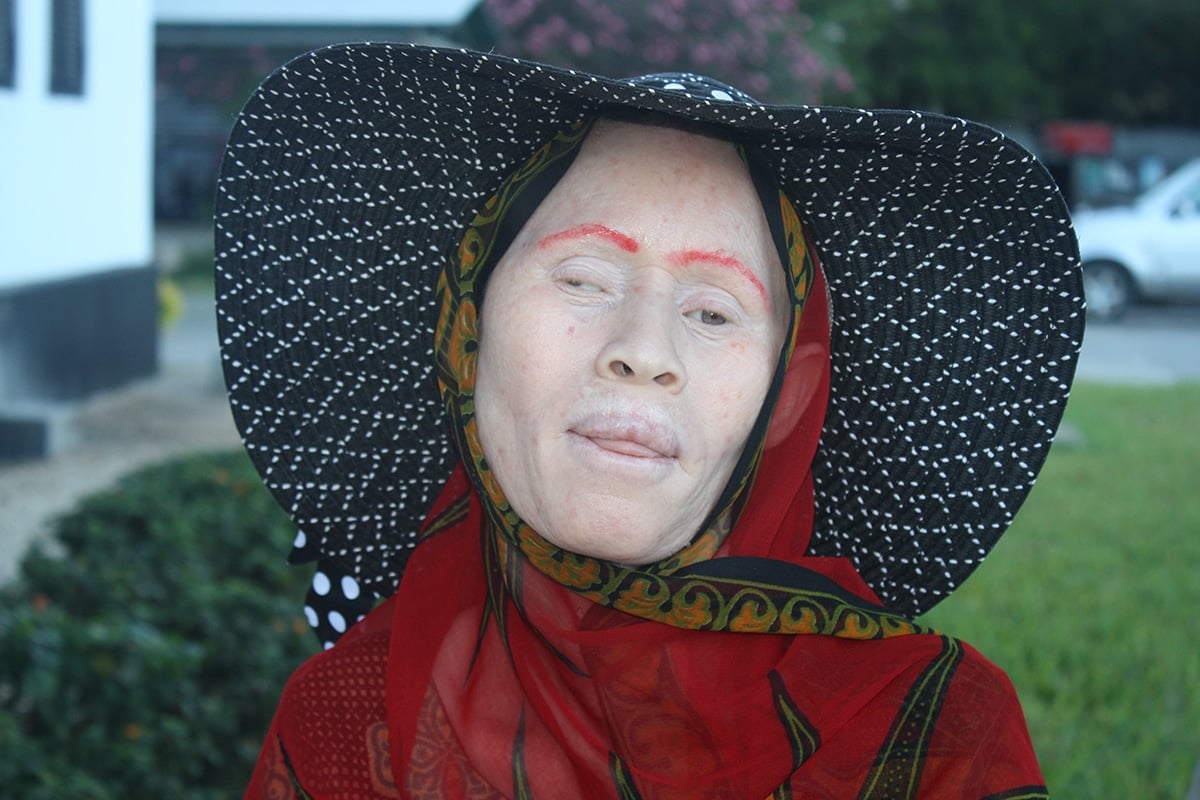
We’re a few years late but congrats on that Trust Women Award you received in 2014! Women in Africa are some of the most influential women out there as they prize family and hard work above all. In terms of feminism, is this a topic that has remained taboo?
Feminism is complex! Across Africa, we’re hearing that word more and more. Some like it, some don’t. Some see feminism as a trend that clashes with the culture that’s on ground at the moment. The fact is, some of the values in African feminism are reminiscent of some of the values that were hailed in some historical societies across Africa in the days of yore. For example, many cultures across Africa celebrated female deities in the past. Womanhood was viewed as divine in some traditions. Today, mainstream, popular forms of Christianity have erased a lot of that and the type of Christianity that you’ll typically find across Africa is one that views women as helpers who are made to be subservient to her husband. African Feminism is controversial. I belong to a feminist group in Nigeria. The issues we talk about arouse deep emotions and spark fiery debates. Gender roles are deeply embedded in many societies. Any attempt to amend those roles can yield havoc and social upheaval. But it’s necessary to take a good look and gender roles and ask what they represent. The way women across Africa work to keep their families and communities intact is nothing short of brilliant. Yet, women are expected to sit in the shadows of men, wait for their turn to speak and be grateful if a man looks pays attention If we want progress in the land, then we’ve got to ask questions and challenge the status-quo.
We’ve spoken a lot about coverage since that is what dictates our priority of concern. 219 girls are still missing since the 2014 original #BringBackOurGirls movement sparked yet it seems that the public has become quite silent and lost attention of this ongoing issue! What is there to be said about this current culture of “clicktivism”? Do most Americans actually absorb what’s on the news or only scratch the surface?
It’s not the responsibility of the American people to care about the Chibok Girls. It’s the responsibility of the Nigerian government to muster up the political will to bring back the Chibok girls. The Nigerian president has yet to even visit Chibok. The vice president has not gone either. What does that say? So, why chastise Americans for what seems to be loss of attention on the Chibok Girls issue, when the Nigerian government never showed enough concern in the first place?
You have achieved so much at such a ripe age! I myself am only 20 so I would love to hear any words of wisdom you have for young journalists like myself.
I can’t say that I have words of wisdom. All I can say is know who you are, know what you stand for and think positive.
More Interviews and Social stories:
The Muxes of Juchitan: Unapologetically Being Who They Want To Be
Doing Things Our Way, The Black Girl Magic Movement
One thought on “African Feminism with Nigerian Journalist Chika Oduah”
Comments are closed.
I loved your interview. Usually I am lazy to read 😉 but all the interview was so interesting that I kept reading